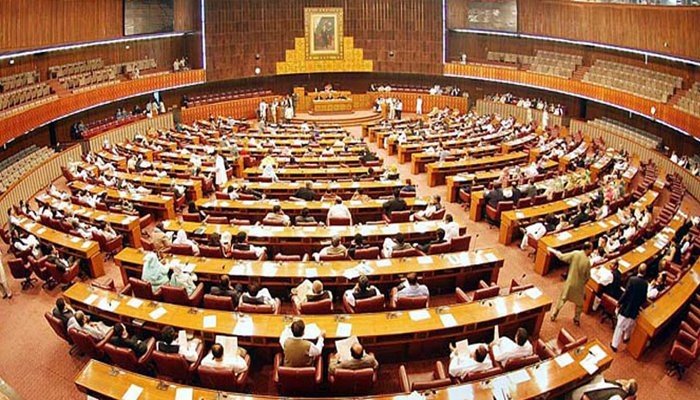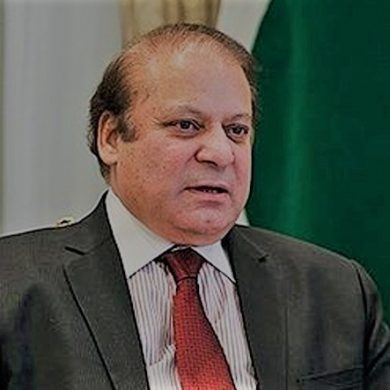Shehbaz Sharif, the leader of the Pakistan Muslim League-Nawaz (PML-N), called electronic voting machines (EVMs) “evil and cruel machines” on Wednesday (17 November), accusing the government of failing to reach an agreement on election reforms.
Shehbaz told a joint session of parliament that the administration and its partners intended to rush through vital legislation. He called it “illegal” and claimed it was the same as sabotaging parliament’s traditions.
In a letter to National Assembly Speaker Asad Qaiser, Shehbaz stated that the Election Commission of Pakistan (ECP), which is responsible for conducting our fair and transparent elections, has expressed reservations about electronic voting machines.
Fawad hopeful on voting rights of overseas Pakistanis
The communications minister expressed optimism ahead of the much-anticipated session that parliament will enact a law granting overseas Pakistanis voting rights.
Taking to Twitter, Chaudhry stated that once this is done, the ruling PTI will fulfil another of its election pledges.
He said, “The laws on electronic voting machines (EVMs) and voting rights for overseas Pakistanis will prove to be a milestone in strengthening democracy in Pakistan.”
Background
As the Pakistan Tehreek-e-Insaf (PTI) government works to reach an agreement on a newly proposed law to secure abroad Pakistanis’ participation in upcoming general elections, state institutions charged with conducting free and fair elections face enormous obstacles.
Almost all stakeholders, from the Election Commission of Pakistan (ECP) to opposition political parties in the Parliament, have expressed strong opposition to the government’s new bill to change the ‘Elections Act, 2017’.
The ‘Election Act (Amendment) Bill, 2020’ aims to offer overseas Pakistanis the right to vote in the next elections and to allow for the use of electronic voting machines.
The ECP, on the other hand, has labeled the government’s latest proposed amendments on maintaining vote secrecy, expanding voting rights to overseas Pakistanis, and implementing an internet voting system as steps that go against the spirit of the Constitution.
ECP chief Sikandar Sultan Raja said in order to exercise its mandate, the top poll’s body of the country requires necessary legislation as to “whether there would be separate seats to be filled by overseas Pakistanis voting, what kind of procedure will be required to be adopted for polling and whether there would be polling stations established abroad or it would be an online voting.”
Furthermore, he said, “The ECP, under Article 220, can seek assistance from all executive authorities in the discharge of its duties of making arrangements for the conduct of free, fair and transparent elections under Article 218(3).”
The federal government’s spokespeople claim that they have previously invited the opposition to study all 62 proposed election reform amendments. PTI wants abroad voters to vote in the upcoming elections, according to Information Minister Fawad Chaudhry.
Chaudhry said, “It is the best choice for us But PML-N and PPP do not want the inclusion of ex-pats after they lost their support.”
2018 By-elections
In October 2018, by-elections were held as per the direction of the Supreme Court, allowing overseas Pakistanis to vote using an internet-based voting mechanism. The outcomes were not encouraging. Over 632,233 overseas Pakistanis from 37 constituencies living in 177 countries were entitled to vote; however, only 7,364 (1%) registered and 6,233 voted.
In 2017, mock polling was performed at Pakistani missions abroad in Saudi Arabia, the United Kingdom, the United States, and Dubai, but the ECP struggled to handle postal votes, despite minimal participation. According to experts, more than 60% of NICOP holders in Saudi Arabia and the United Arab Emirates are from the working class and do not have access to an email system to get voting papers.
Cost for allowing overseas Pakistanis to vote
State institutions must also contend with the high costs of executing I-voting. According to ECP and NADRA officials, a single vote cast by foreign Pakistanis might cost the country more than Rs20,000. Even if only 5% of abroad Pakistanis vote through the internet voting system in the October 2023 elections, the ECP would have to invest over two billion rupees, they claimed.
Experts also believe that if Pakistan executes this exercise of allowing overseas citizens to vote, it will spark a never-ending dispute that will result in lawsuits, accusations of fraud, and manipulation of election results.



